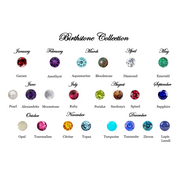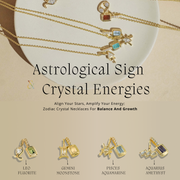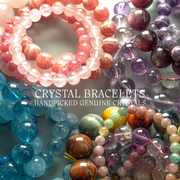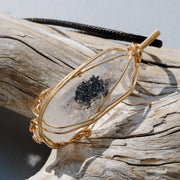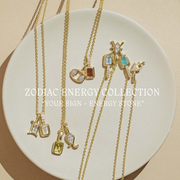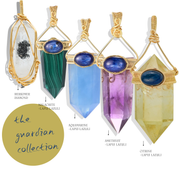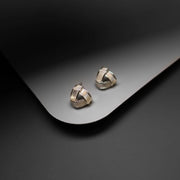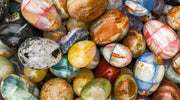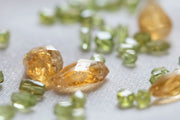Citrine History
Ancient Origins
Citrine, with its radiant golden hues, has been cherished for thousands of years as a symbol of warmth, joy, and prosperity. The name comes from the French word citron, meaning “lemon,” referring to its bright yellow tone. Ancient Greeks and Romans used citrine in jewelry and carved intaglios as early as 300 BCE. The Egyptians considered it a gem of the sun god Ra, using it to attract life-giving energy and vitality. In ancient China, citrine was revered as the “Merchant’s Stone,” believed to bring wealth, abundance, and success to its owner.

Cultural Significance
During the Middle Ages, citrine was thought to protect against snake venom and evil thoughts. It became popular among Scottish warriors, who decorated their swords and clothing with citrine for protection and courage in battle. In the Victorian era, citrine gained renewed popularity as a gemstone of luxury and positivity—often used in elaborate brooches and royal jewelry. Today, it remains one of the most beloved stones for manifesting success and maintaining emotional balance.

Symbolic Uses Through Time
Throughout history, citrine has been linked to the sun’s power, symbolizing clarity, energy, and happiness. Healers have long believed that it channels solar energy to dispel negativity and encourage optimism. Its golden glow continues to represent abundance, creativity, and mental clarity in both spiritual and material pursuits.

Table of contents

Origin
Brazil – The largest supplier of natural citrine, known for its bright golden to orange hues and exceptional transparency.
Madagascar – Produces citrine with deeper amber tones and slight reddish undertones prized by collectors.
Russia (Ural Mountains) – Historically renowned for high-quality citrine featuring a honey-yellow brilliance once reserved for czars and nobility.
Feature
Chemical Formula: SiO₂ (Silicon Dioxide) – Citrine is a variety of quartz colored by traces of iron.
Mohs Hardness: Rated 7 on the Mohs scale, citrine is durable and suitable for everyday wear with minimal maintenance.
Color: Citrine’s color spectrum ranges from pale yellow to deep golden orange. The hue depends on the oxidation state of iron within the quartz crystal, and natural citrine is generally lighter than heat-treated varieties.
Symbolism: Citrine represents abundance, joy, and vitality. It is known as the “Success Stone” or “Merchant’s Stone” for its ability to attract prosperity, positive energy, and motivation.
-
Chakra:
Solar Plexus Chakra (Manipura): Enhances confidence, self-esteem, and personal power.
Sacral Chakra (Svadhisthana): Stimulates creativity and emotional expression.
-
Zodiac:
Gemini
Leo
Benefits
Manifestation and Prosperity
Citrine is widely known for attracting wealth, success, and abundance. It enhances motivation and aligns intentions with action, making it a powerful tool for entrepreneurs and creatives. Many keep citrine in their workspace or wallet to draw financial prosperity and maintain focus on goals.
Emotional Healing and Positivity
Citrine’s sunny energy promotes joy and emotional balance. It dispels anger, fear, and depression, replacing them with enthusiasm and optimism. By clearing negative energies, citrine helps maintain a vibrant aura and strengthens resilience during challenging times.
Creativity and Confidence
Citrine stimulates the imagination and boosts creative expression. It inspires artists, writers, and innovators by freeing mental blocks and enhancing self-confidence. As a Solar Plexus stone, it encourages decision-making and self-empowerment, allowing individuals to trust their intuition.
Physical Vitality
Healers associate citrine with the digestive system, metabolism, and energy flow. It is said to improve stamina, support endocrine balance, and boost overall vitality. Because of its connection to solar energy, citrine is often used to recharge and uplift those feeling fatigued or unmotivated.
Spiritual Growth
Spiritually, citrine promotes clarity, focus, and enlightenment. It helps release limiting beliefs and old patterns, guiding the soul toward growth and transformation. Its radiant energy strengthens manifestation practices and raises one’s vibrational frequency.
Type
Natural Citrine
Formed naturally through geological heat, this variety shows subtle honey or champagne hues. It’s rarer than treated forms and valued for its authentic, gentle glow and balanced energy. Natural citrine is especially sought after by crystal healers for its pure and stable vibration.
Heat-Treated Citrine
Most citrine on the market originates from heat-treated amethyst or smoky quartz. These stones exhibit deeper golden to reddish-orange colors and share the same energetic properties. They are more accessible yet equally beautiful, offering a vibrant burst of solar energy.
Madeira Citrine
Named after the rich color of Madeira wine, this deep orange-brown variety is prized for its warm saturation and elegance. Its bold color symbolizes endurance, confidence, and creative fire.
Lemon Citrine
Recognized for its bright, lemony hue and exceptional clarity, this cheerful stone represents optimism and clarity of mind. It’s often used in jewelry to embody joy and fresh beginnings.
Care & Maintenance
Cleaning
Clean citrine with mild soap, warm water, and a soft brush or cloth. Avoid harsh chemicals or ultrasonic cleaners, as these can dull its shine or alter its color over time.
Storage
Store citrine separately from harder gemstones like sapphires or diamonds to prevent scratches. Keep it in a soft pouch or lined jewelry box away from prolonged sunlight, as excessive exposure may fade its color.
Handling
Avoid exposing citrine to extreme heat, chlorine, or abrasive materials. Always put on citrine jewelry after applying cosmetics or perfumes to preserve its polish and brightness.
FAQs
Q: Is citrine a birthstone?
A: Yes, citrine is the modern birthstone for November, symbolizing warmth, success, and abundance.
Q: How can you tell if citrine is natural or heat-treated?
A: Natural citrine usually has a pale yellow color, while heat-treated citrine often shows deeper orange or reddish tones with color zoning.
Q: What does citrine attract?
A: Citrine is known to attract prosperity, success, happiness, and positive energy, making it a popular stone for manifestation.
Q: Can citrine be worn daily?
A: Yes, citrine’s hardness of 7 makes it durable enough for everyday wear, though it should be protected from harsh impact.
Q: What chakra does citrine activate?
A: Citrine activates the Solar Plexus Chakra, promoting confidence, motivation, and emotional balance.
Final Thoughts
Citrine: Benefits, Properties and Meaning of the Stone showcase why this radiant crystal has become a timeless favorite among healers, collectors, and jewelry lovers. Its golden light symbolizes the sun’s life-giving power, radiating warmth, clarity, and abundance. Whether used for meditation, worn for daily empowerment, or kept as a good-luck charm, citrine serves as a reminder that positivity and purpose attract prosperity. In every sense, it’s a gemstone that illuminates the path to joy, creativity, and self-confidence—a true beacon of light in the world of healing stones.

